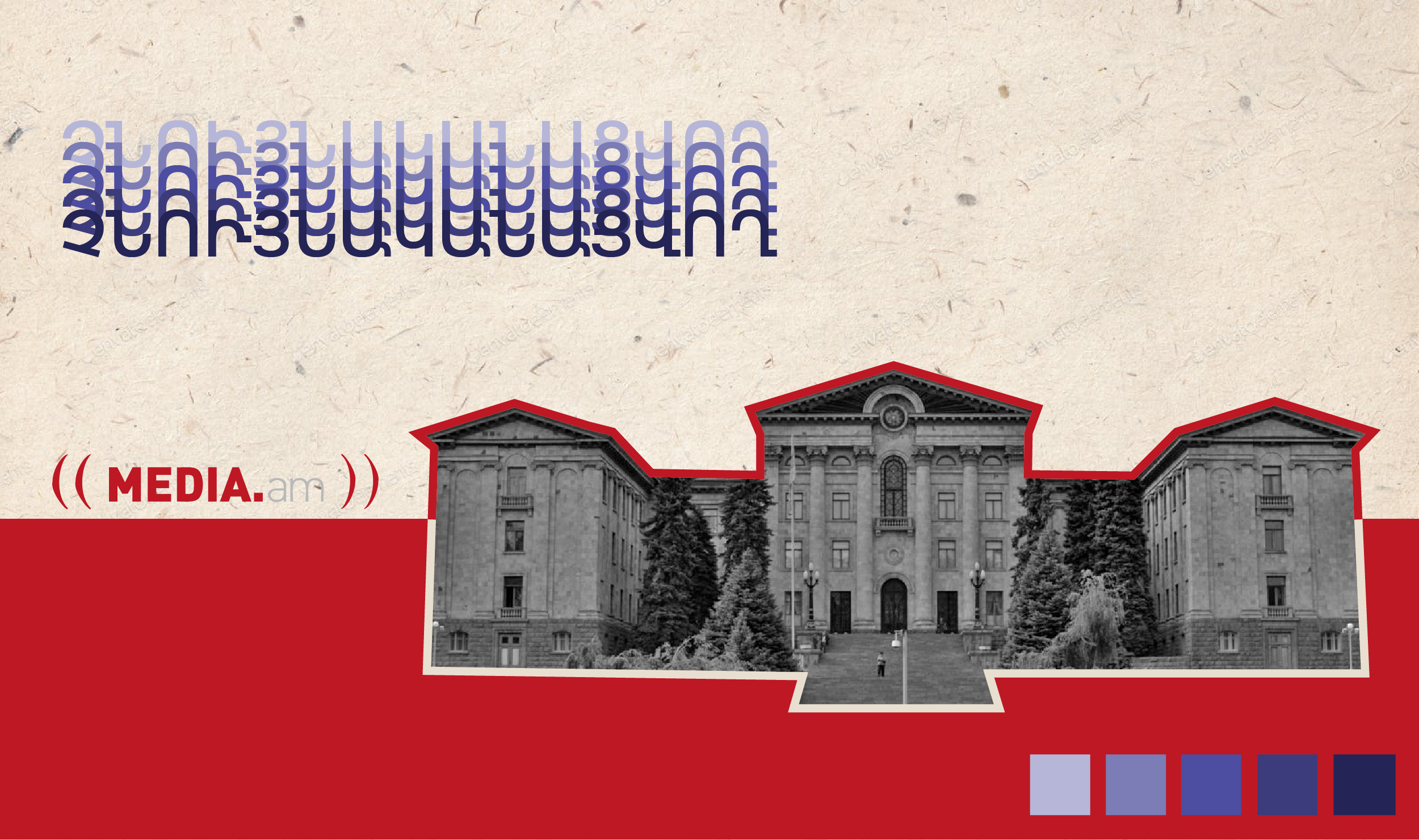
The news of making changes and additions to the law “On Mass Media” of the Republic of Armenia, which has caused a stir these days, has become another subject of thought for media employees.
According to these amendments, the term “non-identifiable source” will be introduced into law, the rights of journalists accredited to the National Assembly will be restricted, and the financial reports of the media will be made public.
To assess the tangible effects of all this, we spoke with lawyer անդ information security specialist, Davit Sandukhchyan.
What is the law and what changes have taken place?
The first steps to make changes and additions to the Law on Mass Media HO-14-N of December 13, 2003, were at the beginning of the year, which was recalled and amended for a long period of time after being severely criticized.
The amended version of the law was published on September 10, 2021, by which the issue was again updated and received contradictory opinions in the media sphere.
In this article, we refer to the problematic points of the third, amended version of the amendments and additions to the Law on Mass Media, separately.
What new definitions does the law put forward?
Non-identifiable source
A somewhat longer explanation from the law:
Non-identifiable source: a domain registered on the Internet, a hosting site, or an account or channel or page (hereinafter referred to as the source) of a website or application whose owner’s identification data is missing or clearly false or incomplete if that defect does not allow the source to be identified.
The identification data of the director are; the natural person managing the source, ie.:
- First name
- Last name,
- Place of residence or registration
- If the media activity is carried out as a sole proprietor, then also the state registration number,
- If the source is managed by a legal entity, the full name of the legal entity, the organizational-legal form, the registration number.
The journalistic community saw no differences between the terms “unidentified source” and “anonymous source.” According to the new law, the media outlet is not released from responsibility for the information disseminated by referring to a non-identical source.
Lawyer Davit Sandukhchyan described this demand as “stupid,” as it is physically impossible to check the sources of all media outlets.
“Who will check all the media outlets and find out whether the link complies with the law or not? It is more likely that you will target several media outlets and dig into them, circulating selective law enforcement. The principle is illogical and illegal,” said Sandukhchyan.
Liability for compensation
The amendment to Article 687.1 of the RA Civil Code deriving from this law imposes an obligation of compensation for reproducing insult and slander spread by a source not identified by the media.
According to Davit Sandukhchyan, the issue could have been summed up in one sentence, without using the term unidentified source, merely stating that the media outlet should do its best to verify its sources, and in case of an unspecified source, the media outlet should be held responsible.
“There was no sense in burdening the administrative body with uncharacteristic functions, although it is not difficult to open dozens of non-identifiable websites in other countries and use them to spread slander on the side. In this case, the law would no longer work,” said the lawyer.
Media financial report
Submitting annual financial statements is not new to the media, but the requirements for it are new, for example, a domain name registered on the web page of a web hosting site must publish the previous year’s financial report under the heading “Annual Report,” citing financial sources.
What will happen if the report is not made public?
The first punishment is a fine. The next amendments and additions arising from this law were made in Article 189 of the RA Code of Administrative Offenses of December 6, 1985. In case of not submitting the financial reports on time, the media outlet will be fined between 300,000 – 500,000 AMD. Once fined if continuing to not comply with the law, the fine will increase and be between 500,000 – 700,000 AMD.
There are also various penalties for non-compliance with the statutory release of data or for failing to send copies of media releases.
“When Boris Navasardyan and Mark Grigoryan and I participated in the drafting of a law on the media, it was assumed that the state was leaving the field, allowing the media to govern itself. These authorities are pushing the law into the administrative sphere,” said lawyer Sandukhchyan about the fines.
Journalist accreditation
The other controversial amendment to the law on the press refers to the accreditation of journalists covering the RA National Assembly. There are points directly related to media reports, as well as vague formulations restricting the entry of journalists to the National Assembly.
The amendment assumes that only journalists from a media outlet that has previously registered and submitted mandatory annual financial statements and copies of issues can be accredited. This is followed by the wording, “Other grounds for refusal may be established by the accreditation of journalists in the relevant state body.” At the heart of the journalistic community’s concern are other grounds for rejection that are not clearly articulated.
“Preventing the well-known media outlet that did not submit its financial report from being accredited is more a matter for the National Assembly than for the media outlet. The National Assembly should be happy that it is being covered,” said David Sandukhchyan.
According to the lawyer, a good media outlet should not even need accreditation, citing the world’s experience of accrediting those who read it, they don’t give accreditation without a rating.
The ombudsman of the Republic of Armenia has applied to the Constitutional Court of the Republic of Armenia regarding the amendments to the laws that will enter into force on January 1, 2022. According to Arman Tatoyan, the issues related to the professional activity of journalists in the National Assembly are uncertain in the NA Rules of Procedure. During the public discussion organized by the deputies representing the “Armenia” bloc, Lilit Galstyan and Elinar Vardanyan, in the National Assembly, to which the representatives of the media sphere were invited, called the amendments to the law “threatening the freedom of information.”
Christian Ginosyan


Add new comment
Comments by Media.am readers become public after moderation. We urge our readers not to leave anonymous comments. It’s always nice to know with whom one is speaking.
We do not publish comments that contain profanities, non-normative lexicon, personal attacks or threats. We do not publish comments that spread hate.